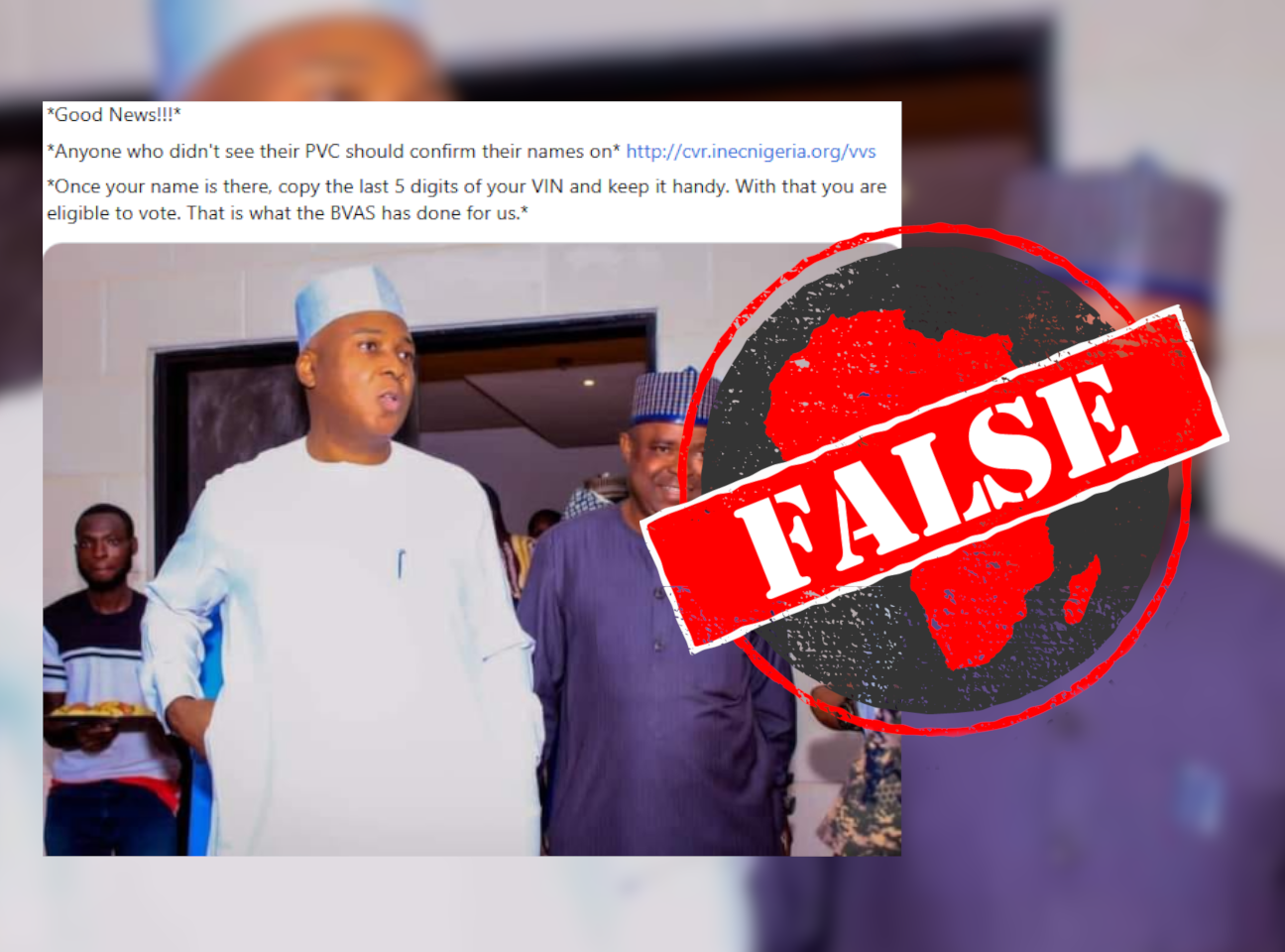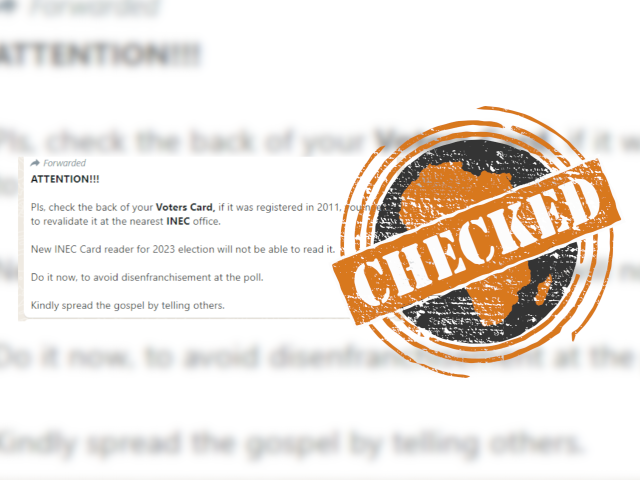IN SHORT: With Nigeria’s 25 February 2023 general elections only weeks away, there’s plenty of misinformation circulating on social media about what to expect. Posts claiming voters won’t need a voters card to participate fall into this category and should be ignored.
A post shared on Facebook in Nigeria claims you don’t need a permanent voters card (PVC) to vote in the country’s upcoming general election.
The PVC enables registered voters to cast their votes. Biometric data is stored on the card, which can only be read by an electronic card reader.
Nigeria’s independent national electoral commission (Inec) is responsible for registration of voters, the issuing of permanent voters card and conducting elections in Nigeria.
The Facebook post reads: “Good News!!! Anyone who didn't see their PVC should confirm their names on* http://cvr.inecnigeria.org/vvs. Once your name is there, copy the last 5 digits of your VIN and keep it handy. With that, you are eligible to vote. That is what the BVAS has done for us.”
The bimodal voter accreditation system (BVAS) is an electronic device that reads PVC cards to authenticate eligible voters at polling units.
The same claim was posted here, here, here and here on Facebook.
But is it true Nigerians don’t need a PVC to vote? We checked.

Misleading claim
When Africa Check visited the link in the post, we found an Inec website designed for eligible voters to check their voter verification status.
Furthermore, Rotinmi Oyekanmi, Inec’s chief press secretary, told Africa Check that “no voter without a PVC will be allowed to vote during the 2023 General Election”.
“There are no other options. It is a fundamental requirement that every voter who intends to vote must present his/her PVC issued by Inec to poll officials at the polling unit, which will first be scanned and authenticated.
“After that, the voter goes through the accreditation protocol before being issued with a ballot paper. The public should disregard any other information to the contrary,” Oyekanmi said
Republish our content for free
For publishers: what to do if your post is rated false
A fact-checker has rated your Facebook or Instagram post as “false”, “altered”, “partly false” or “missing context”. This could have serious consequences. What do you do?
Click on our guide for the steps you should follow.
Publishers guideAfrica Check teams up with Facebook
Africa Check is a partner in Meta's third-party fact-checking programme to help stop the spread of false information on social media.
The content we rate as “false” will be downgraded on Facebook and Instagram. This means fewer people will see it.
You can also help identify false information on Facebook. This guide explains how.



Add new comment